The Cost of Truth in Theater J’s After the Revolution
After the Revolution, Amy Herzog’s drama, is set in New York in 1999 but obliquely and brilliantly holds a mirror up to the present. Theater J, in a riveting production, has brought After the Revolution to Washington, DC, where it is crucially needed. While the action revolves around family conflicts, the play is a meditation on government intimidation, truth-telling, and loyalty, in its various guises.
After the Revolution is a beautiful, moving story—a subtle call to arms. Or perhaps, better said, a call to speak our own truth, whatever the cost.
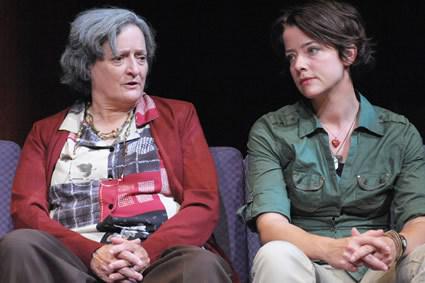
Photo by Stan Burouh.
Protagonist Emma Joseph, a recent law school graduate, has set up a fund to help Mumia Abu Jamal and other prisoners she believes have been unfairly convicted. She has named the fund after her grandfather, an outspoken Communist who was called before the House Un-American Activities Committee and blacklisted during the McCarthy era. Emma believes that Mumia, like her grandfather, was targeted for retaliation because of his beliefs. She happily sets about fundraising and working on the legal aspects of the cases. The twist comes when her father must tell her an uncomfortable fact, before a soon-to-be-published book spells out the information: during World War II, while working for the Office of Strategic Services, her grandfather passed classified information to the Russians.
The revelation throws Emma into turmoil. Her father continues to maintain that her grandfather, Joe Joseph, shouldn’t have been blacklisted. “No, he should have been tried for espionage,” Emma thunders. Her father has been less than truthful about her grandfather’s past. Her grandfather not only spied for the Russians; he perjured himself during his testimony before the committee. Emma has to decide whether to shut down the Joe Joseph fund, rename it, or move forward with her work as planned. She even begins to doubt Mumia’s innocence, although her boyfriend, who also works for the fund, points out that what is at issue is the fact that his trial was unfair, and if he weren’t a former Black Panther, he wouldn’t be awaiting execution.
After the Revolution is in part a coming-of-age story. Emma has to learn to see fine distinctions and accept and work with the less than perfect. Her father, grandmother, boyfriend, and a friend of her father’s all point out to Emma that, although her grandfather passed information to the Russians, they were our allies during World War II. Emma’s struggle to accept the flawed nature of her family is deeply nuanced and carefully drawn, perhaps because Amy Herzog’s grandfather, Julius Joseph, was called to testify before the committee, was blacklisted, and was—as she found out a few years ago—a spy for the Russians. Like her protagonist’s grandfather, his participation was discovered when US government agents decrypted Soviet messages in an undertaking known as the Venona project. Because the Espionage Act specifies that an intent to harm the United States must be present, and because Russia was our ally at the time, it’s quite possible that the actions of Herzog’s grandfather—and the grandfather in the play—would fall short of espionage. Emma finds them dishonorable, nonetheless.
As compelling as the question of what Emma will do with the truth she has learned is the question of whether she will forgive her father from keeping the less savory aspects of her grandfather’s past from her for years, even as she was forming the fund in his name. The relationship between Emma and her father is the emotional heart of the play. Under Eleanor Holdridge’s sensitive direction, all the roles are beautifully acted (Emma is played by Megan Anderson, her father by Peter Birkenhead, and her grandmother is wonderfully portrayed by Nancy Robinette.)
...her father notes that the gap between rich and poor has been steadily growing, the new millennium is about to begin, and there is a generalized complacency.
While the family conflicts play out, the broader resonances of the story gently and ineluctably unfold. After Emma’s law school graduation ceremony, her father notes that the gap between rich and poor has been steadily growing, the new millennium is about to begin, and there is a generalized complacency. “It’s hard to imagine things getting much worse,” he says. The irony is clear. The gap between rich and poor has widened considerably, and the global war on terror has created an atmosphere of intimidation reminiscent of the McCarthy era. Edward Snowden comes inevitably to mind, but he is only one of seven people the Obama administration has charged with violating the Espionage Act. In none of these cases were secrets sold or given to an enemy government. Rather, information was conveyed to reporters, with the professed aim of furthering the public good. Emma’s father makes reference to “the way our country still punishes those who speak out.” In recent years those punishments have become more varied, more frequent, more severe, and more extreme, in ways that would have been difficult to imagine in 1999.
Theater J, whose mission is to produce plays that are politically engaged and thought provoking, as well as personal, passionate, and entertaining, could not have selected a better play for the current moment. When Emma’s father points out that his dad lived in terror—their phone was tapped—we remember that that this selective monitoring is a thing of the past; we have moved to a wholesale model. Emma’s grandmother poignantly notes that, whatever their mistakes, her husband raised his children to be proud and not afraid and to keep fighting. After the Revolution is a beautiful, moving story—a subtle call to arms. Or perhaps, better said, a call to speak our own truth, whatever the cost.

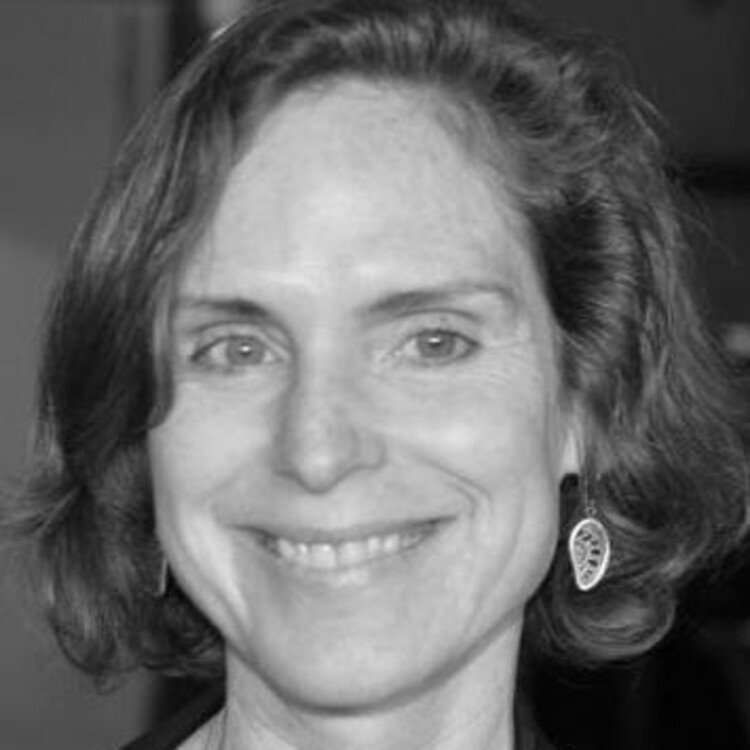
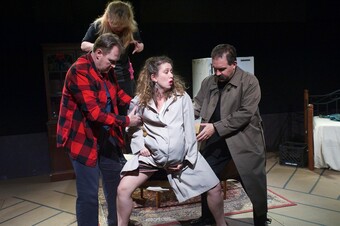

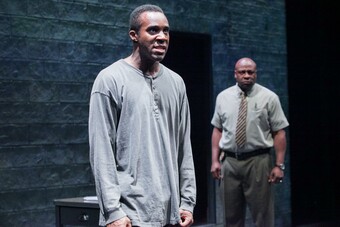

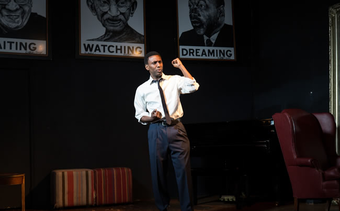
Comments
The article is just the start of the conversation—we want to know what you think about this subject, too! HowlRound is a space for knowledge-sharing, and we welcome spirited, thoughtful, and on-topic dialogue. Find our full comments policy here